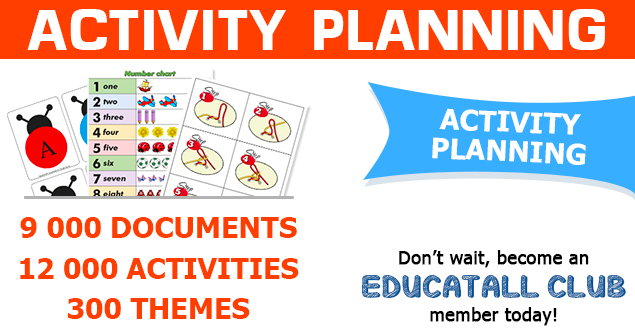
I want to…but I can’t
I recently read some of the articles I published here. In doing so, I realized just how much my son inspires me. When I sit down to write an article, I search magazines, the Internet, and discussion boards… They all represent great sources for ideas I can use to build an article.
The Special needs section is linked to my daily life as both a mom and early childhood educator. We all face challenges. Certain challenges can lead us to look at our “parental role” differently.
“I want to…but I can’t.” This is probably the sentence I have heard the most in the past few years. My son repeats it non-stop. Why? Often, I ask him to concentrate, but successfully doing so is quite difficult for him. I ask him to remain seated, but that also represents a challenge for him. I ask him to focus on the task at hand, but once again, that is not easy for him. When your child tells you, in his own words, that he is aware of his difficulties, that he is really trying (and you can see his efforts), but he just can’t succeed, it’s troubling to say the least. That is precisely why I decided to see a specialist when he was 6 or 7 seven years old. My son could not stop moving and would tell me that he couldn’t control himself. He needed to move all the time.
You may be wondering why I am sharing all of this. I am sure that there is at least one child in your group who is like my son, a child who needs to move all the time. Despite his efforts and no matter which tricks and tools you try to integrate, he just cannot stop moving.
It’s no secret that I love children who have special needs. They are unique and they push us to adapt to them. When you ask them to do something, ask yourself if they have the capacity to succeed. If they cannot succeed, is it because they lack motivation, because they are seeking confrontation or opposition? Finding THE answer is not always easy, but can considerably influence your intervention.
Children who have special needs often have poor self-esteem. This is in fact a consequence of their diagnosis. The countless negative interventions linked to their behaviours, the words spoken by the adults that surround them, their peers’ comments, and their awareness of their many setbacks make them extremely vulnerable. When, on top of all that, children realize they repeatedly fail at fulfilling your requests, the impact is considerable.
With my many years of experience as both a mother and early childhood educator, here are a few tricks that may be helpful.
The most important one: positive reinforcement. Here, I am not talking about reinforcing children’s results. Instead, make a point of reinforcing their efforts. You must be aware of their efforts, notice them, and highlight them as often as possible.
Observe your group closely. As previously mentioned, observation is probably what will make finding THE answer possible.
Take the time to read up on children’s development and try to make connections with what you observe. Remember that each child develops at his own pace. It’s therefore quite possible that what you will read in books won’t correspond with what you observe. There can be a “gap” between what can be expected of a child at a certain age and what he can really do. Of course, if this “gap” is too important, you may need to discuss the situation with the child’s parents.
Older children can be open to discussing their difficulties. You can talk about your observations and suggest various tricks you could try together. Your goal is to help children, not make them suffer the consequences of their diagnosis. Make sure they understand this fact.
To conclude this article, I would like to remind you that each challenge helps us grow. I would not be the mother I am today if I had not had this little being with special needs in my life. I would not be the same early childhood educator either. Children who have special needs are beautiful gifts.
Maude Dubé, Specialized educator

 Home
Home Theme activities
Theme activities
 Babies and toddlers
Babies and toddlers
 Arts and crafts
Arts and crafts
 Science
Science
 Creative recipes
Creative recipes
 Tips and tricks
Tips and tricks
 Special needs
Special needs
 Extra activities
Extra activities
 Educ-TV
Educ-TV
 Newsletter
Newsletter  Online store
Online store Educatall club
Educatall club

